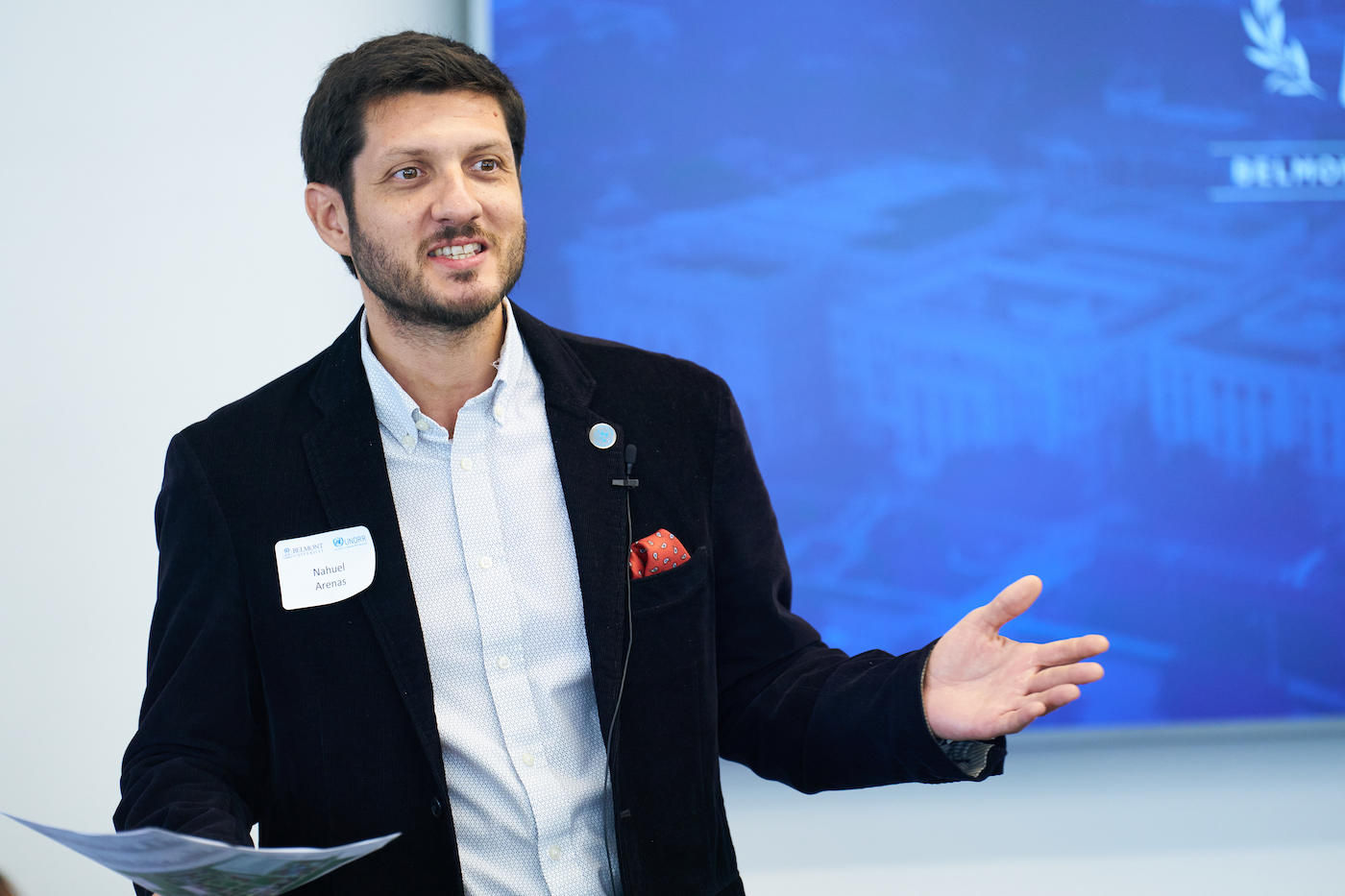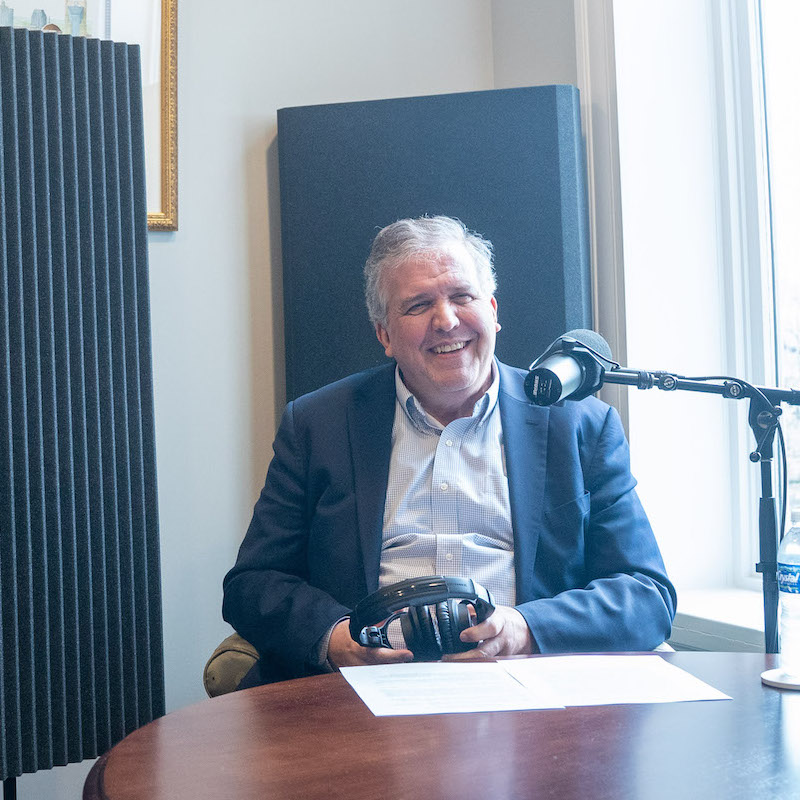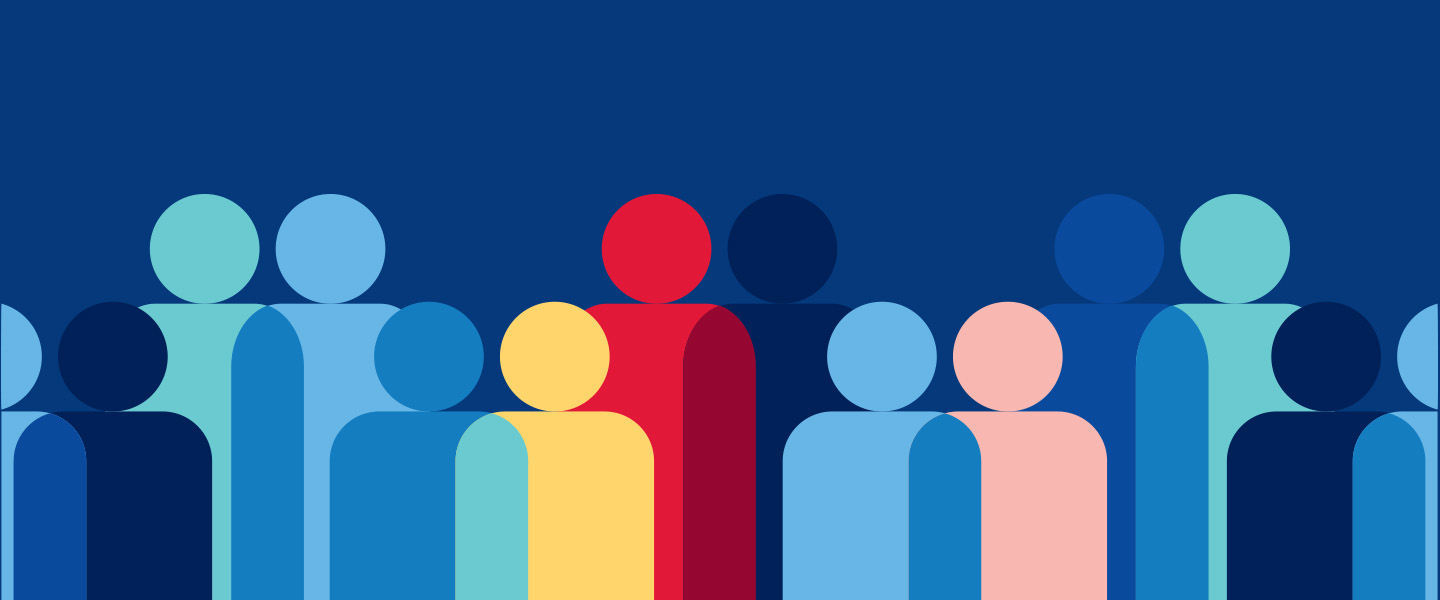Listen to the Episode
About the Episode
Nahuel Arenas García, champion of resilience, discusses the vitality of understanding risk through a lens of inclusivity, and highlights how empathy is the key to utilizing the necessary tools to aid vulnerable communities.
Prioritize Empathy. Grow Resilience. Inspire Change.
Chief of the Regional Office for the Americas and the Caribbean of the United Nations Office for Disaster Risk Reduction, Nahuel Arenas García joined Dr. Greg Jones to share his empathetic and solutions-focused strategy of helping communities that are vulnerable to social and natural risk. He then encouraged younger generations to focus in on their ambitions to make change in the world.
“I live in Panama now, where it's not the most hit by disaster, but there is this consciousness of the things that are going on in the world and how we need to create a culture of prevention from that very young age,” Nahuel explained. “So that, for me, is hope. I have hope in children who are growing up in a very complex world, but will have the tools to make this world a better place.”
This episode covers…
- How cultivating resilience better equips one to help others vulnerable to risk, and how precision is key to optimizing productivity in risk management.
- The importance of focusing on inclusivity and understanding others’ perspectives to cater to peoples’ individual needs.
- Educating others about vulnerable populations, utilizing resources such as technology and data to better reduce disaster risk and training the next generation to change lives.
Just focus on what you're passionate about, and then take that and try to make the world a better place. You can spread positive words and be a positive agent of change. We have one planet, and we are one community, so we have to take care of each other.
Remedies In Resilience
 Discussing the thorough work it takes to fulfill his job of helping vulnerable communities, Nahuel shared his beliefs about how empathy fuels resilience and strengthens the efforts toward risk reduction.
Discussing the thorough work it takes to fulfill his job of helping vulnerable communities, Nahuel shared his beliefs about how empathy fuels resilience and strengthens the efforts toward risk reduction.
“Developing empathy, listening, trying to understand the needs and root causes is important because disaster risk reduction is more about vulnerabilities than it is about hazards,” Nahuel noted. “I see a huge confluence with empathy and the understanding of the circumstances through which different human beings have to go through.”
Witnessing heavy amounts of adversity and suffering during and after disasters, Nahuel expressed a sense of community in helping others, which inspires him to maintain the hope that drives his resilience.
“One of the stories that most hit me was when we were talking to refugees who were fleeing from ISIS in Iraq and Syria, and their stories were of unimaginable sorrow and sadness,” Nahuel shared. “But I also see the power of hope, and I see local communities striving because of their own resilience, so I'm convinced that this is the path and that eventually we'll thrive.”
Nahuel expanded on how resilience brings communities closer together and strengthens the collective effort toward creating safe and constructive environments.
“With resilience, we have to make it concrete, and this is a challenge because it means that when you recover from a disaster, you do not go back to the same vulnerabilities and the same conditions that exposed you to that risk,” Nahuel stressed. “You are coming out of it stronger, with factors like solidarity, and a sense of togetherness.”
Nurturing Inclusivity
From his experience working across a range of countries and regions, Nahuel shared his reflections on working with diverse groups of people, stressing the importance of accommodating those who are often overlooked.
“Around 10 to 15 percent of the population lives with some sort of disability, but the mortality rate in that segment of the population is two to four times higher,” Nahuel informed. “Vulnerable populations are disproportionately affected by disasters. So we have to look at the specific needs of these different groups to make sure that we leave no one behind.”
With this intention, Nahuel is particular about correctly defining risk in the context of vulnerable populations, and understands that although natural disasters are inevitable, the ability to help others in need is completely doable.
“Yes, climate change has exacerbated the frequency and the intensity of hazards, but when it comes to how exposed people are or how vulnerable people are, these are our decisions,” Nahuel said.
Nahuel explained how to productively approach problem-solving by understanding others’ perspectives and putting yourself in another person’s shoes.
“I think some of these complex questions need to be addressed by identifying sometimes simple solutions,” Nahuel described. “We cannot solve systemic problems by working in silos. We need to bring different disciplines around the table to promote systems thinking.”
Discovering Inspiration
Aiding him in continuing his rigorous yet rewarding work, Nahuel described the solution to achieving a healthy work-life balance and how he finds fulfillment outside of his calling with hobbies such as making music.
“On a personal level, I try to keep balance,” Nahuel offered. “I feel that it is my drive to work for the common good, but at the same time, we need to have clarity on boundaries and understand that even if we are passionate about our work and want to make a mark on the world, we still need to work to live and not live to work.”
Nahuel revealed that hope often comes through people such as his daughter, who are learning about how to change the world, and inspire him to lift up the next generations.
“My youngest daughter brought to me her homework, a booklet on disasters, not because of me, because that was part of the curriculum,” Nahuel illustrated. “There is this consciousness of the things that are going on in the world, and I have hope in the next generation. Hope is in children who are growing up in a very complex world, but have the tools to make this world a better place.”
Nahuel concluded by providing insight and guidance for younger generations pursuing education, and who may be unsure about what lies ahead in their path.
“Just focus on what you're passionate about, and then take that and try to make the world a better place,” Nahuel advised. “You can spread positive words and be a positive agent of change. I think that we do what we do with passion. We have one planet, and we are one community, so we have to take care of each other.”

Stay Connected to The Hope People
Follow The Hope People wherever you get your favorite podcasts, and visit thehopepeoplepodcast.com for ways you can become an Agent of Hope yourself!
For more writings and content from Belmont University and President Greg Jones on the power of hope in our lives, sign up for Greg’s listserv.
Recent Episodes
Stay inspired!
Sign up to be notified about new episodes and more.


